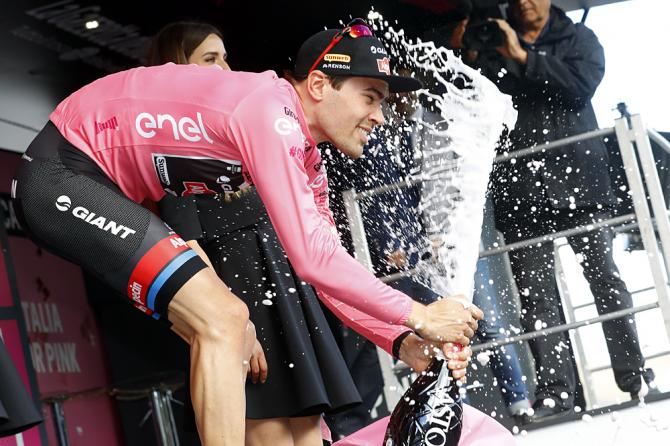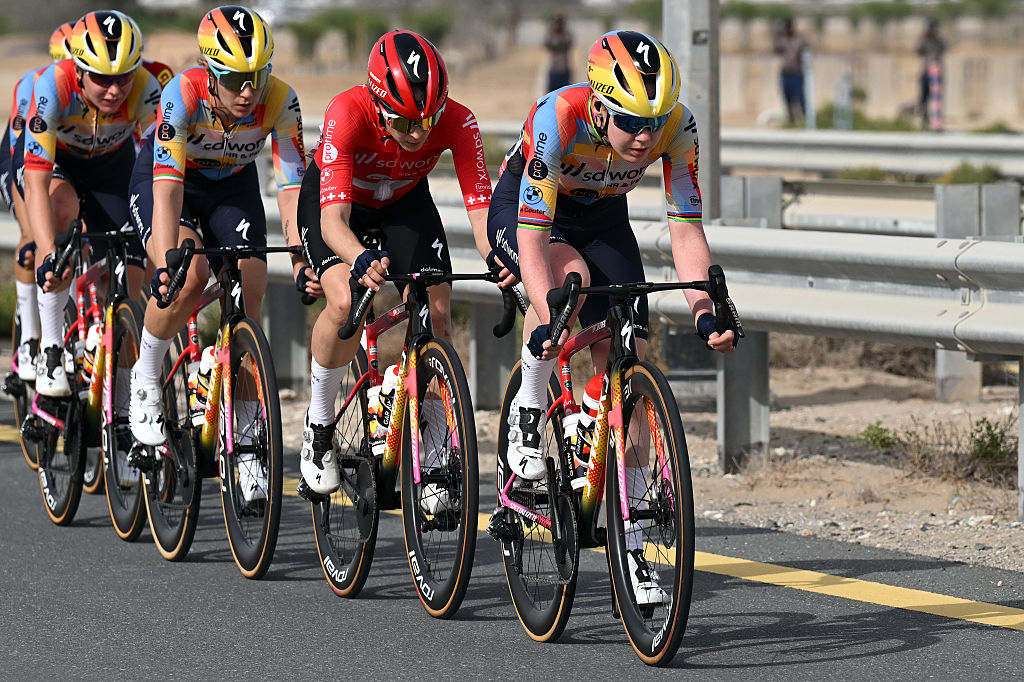Dumoulin: If you are not willing to lose, then you can't win
Q&A with Giant-Alpecin rider on Giro d'Italia, Tour de France, Rio, and motorbike safety
The latest race content, interviews, features, reviews and expert buying guides, direct to your inbox!
You are now subscribed
Your newsletter sign-up was successful
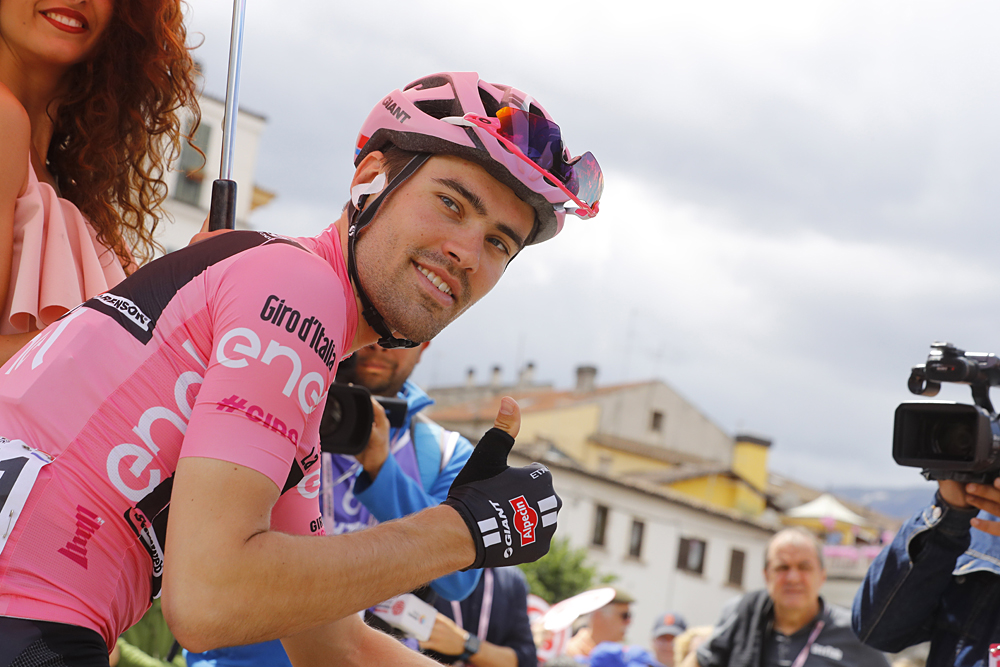
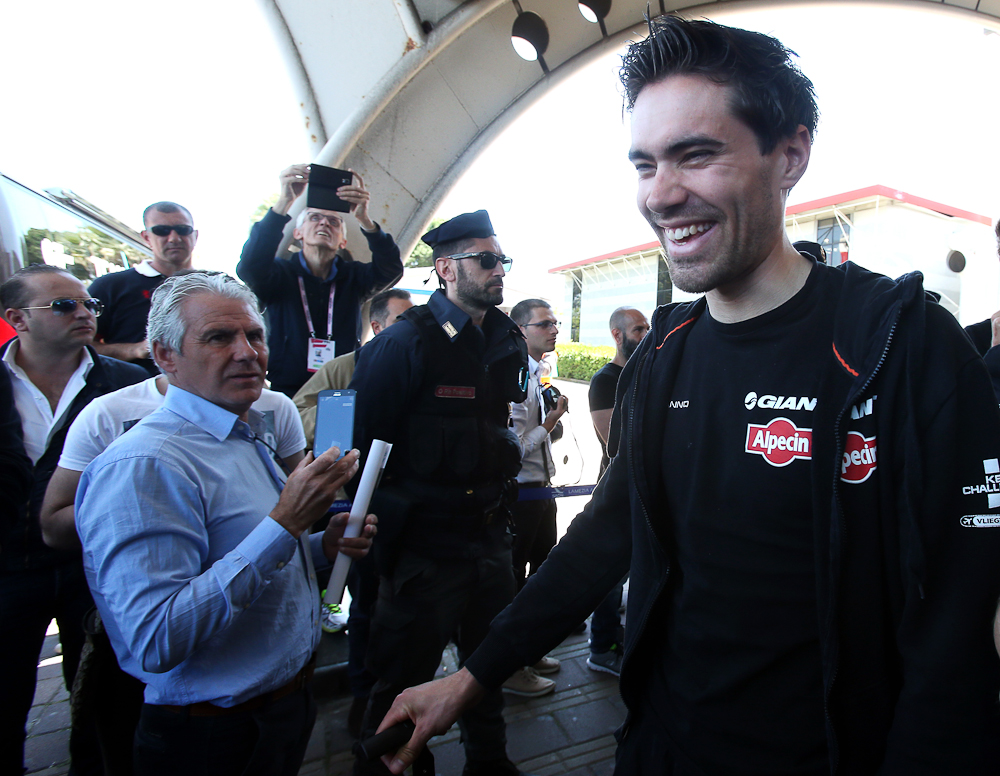
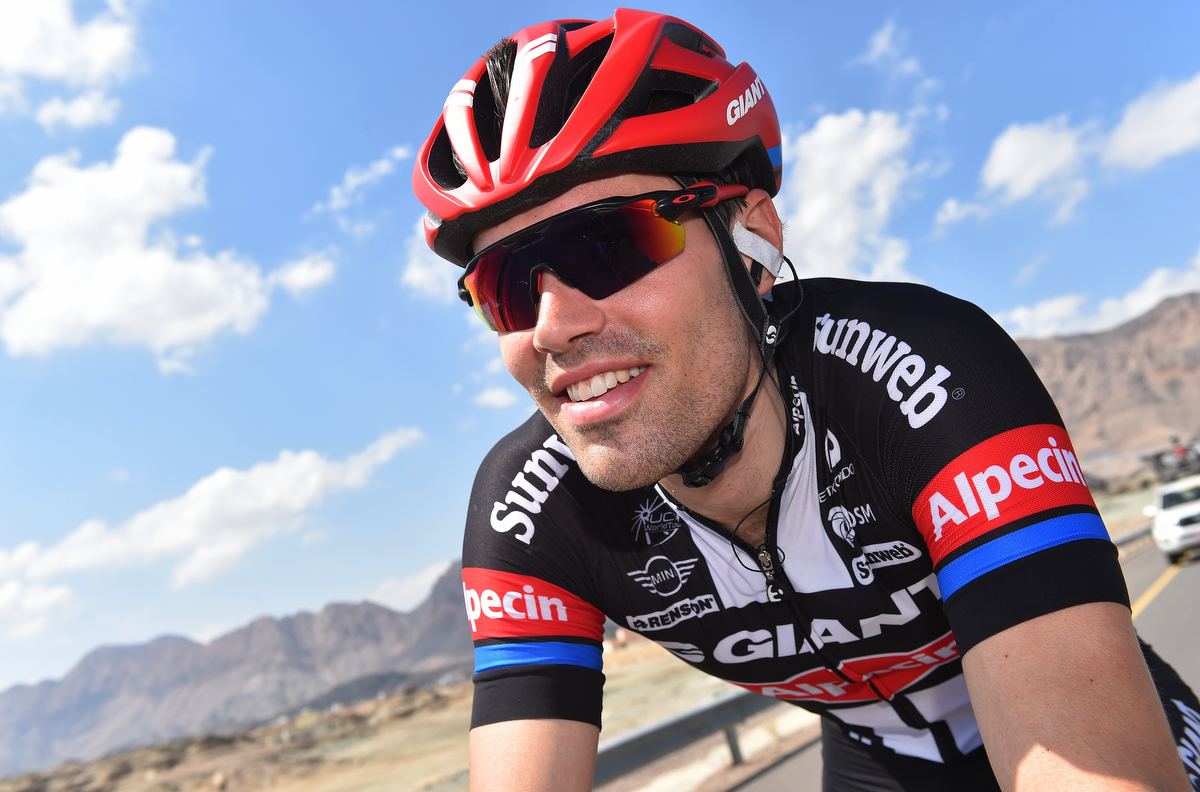
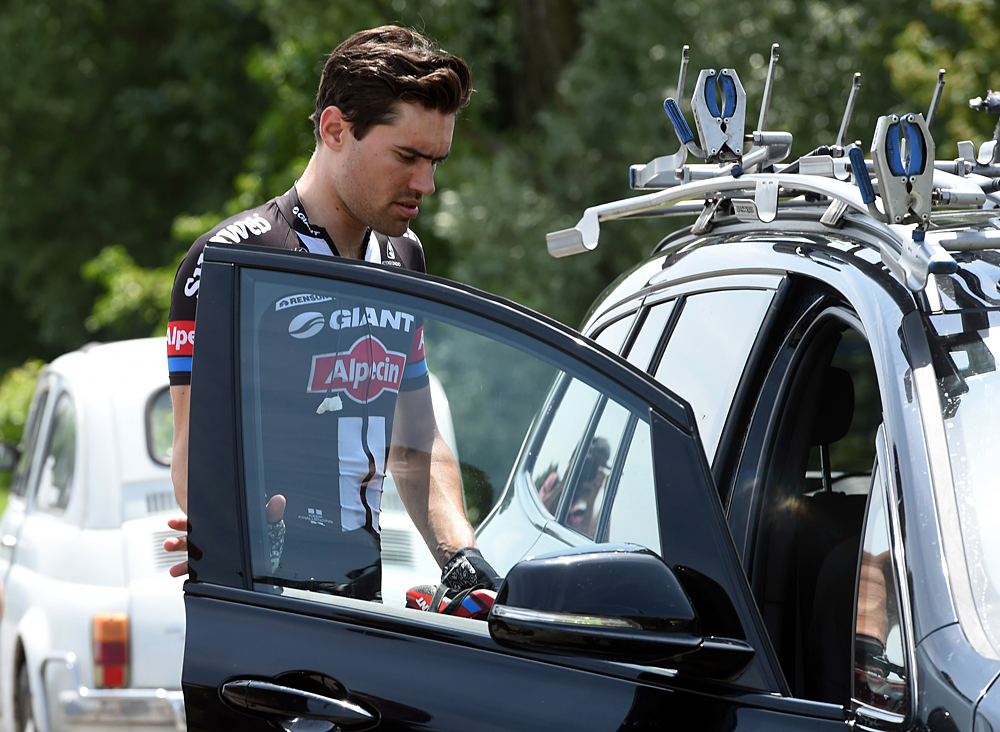
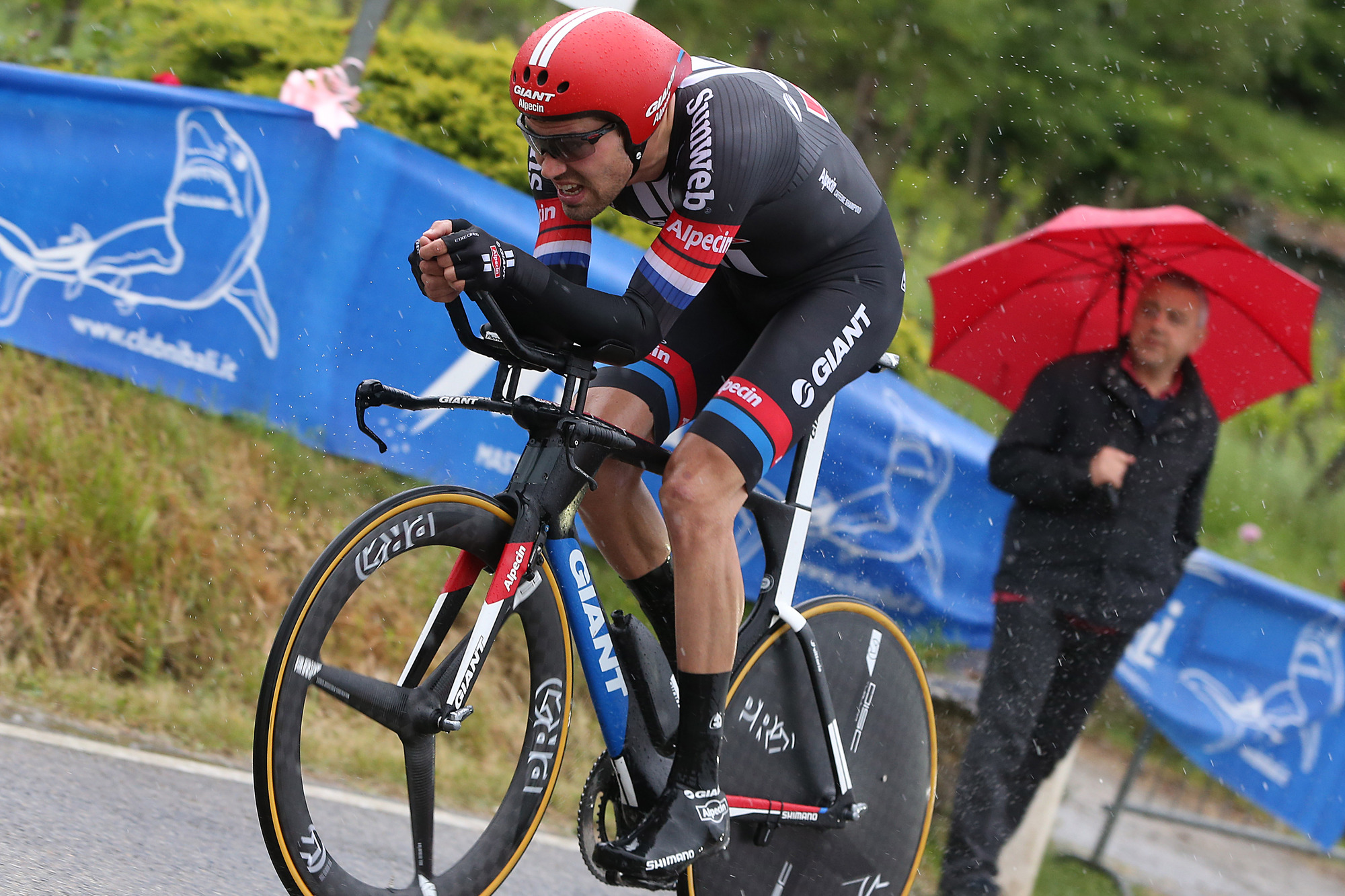
The best-laid plans of mice and men, go oft awry, Scottish poet Robert Burns once wrote in his poem 'To a Mouse'. Tom Dumoulin and his Giant-Alpecin team have been learning that this season after he was forced to abandon the Giro d’Italia on stage 11.
Dumoulin had hoped to complete the Italian race as part of his preparation for the Olympic Games in Rio this August. His abandon forced the team to make some slight changes to his programme and instead of racing in Italy he spent a few days recovering at home before heading out early for an altitude training camp in the Sierra Nevada.
Cyclingnews caught up with Dumoulin a week into the three-week camp to discuss the Giro d’Italia, the Tour de France, Rio, and motorbike safety.
Cyclingnews: Obviously there is the altitude aspect of the training camp but do you have a particular focus for this training camp?
Tom Dumoulin: My focus here is on Rio especially. I’ll be doing the Tour and Rio, but Rio is more in my mind than the Tour. For both events I have to be climbing well because Rio is also quite hilly. That means being right and climbing well. I’ll be doing some TT training, a little bit of everything, but climbing is the main focus.
CN: How are you?
TD: I took five days off after the Giro to let everything recover. From that moment on, I picked up training slowly. It was easy hours in the beginning but even after just a week, I went to altitude. I did some training at home, but here it really started going again.
The latest race content, interviews, features, reviews and expert buying guides, direct to your inbox!
CN: How hard was it to leave the Giro d’Italia after such a strong start?
TD: The good start made it a bit easier. The main goal in the Giro was to win a stage and hopefully wear the pink jersey, so that was nice. When I became a cyclist, you’ve grown up with the belief that a cyclist never quits, and that is so in my mind that it was hard to leave the Giro, but it was the best decision. It was getting worse and worse, and my problems got worse and so did my shape. It wouldn’t have made any sense to continue.
Saddle sores can grow into a big problem that you need surgery for, and that is something I wanted to avoid. That would have been worse. I stepped out before that was necessary.
CN: Did you get a chance to watch the Giro d’Italia after you left or did you want to stay away from it?
TD: I watched it. I was doing nothing at home. Actually, I was doing something, I was moving house, but I watched pretty much almost everything. There were no hard feelings, though. I was rooting for Steven Kruijswijk. Being a Dutchy, it was a cool last week to watch until his crash.
Those days are really nice when you have good shape but if you haven’t then it’s hell. I don’t know how my shape would have been. If I’m in good shape, then I would have loved a week like that.
CN: What is your mindset going into the Tour considering your main goal comes after it?
TD: Actually, it’s quite relaxed because Warren Barguil has been, for a long time, our team leader for the Tour. He has been focusing on doing the GC for a long time. It would have been strange for me to suddenly step in and say I want to be the GC leader. The other thing is that I don’t think it would be a good idea to go full gas for three weeks for the GC and then go to Rio. So it won’t be my focus.
It will be the same plan as the Giro. I will be focusing on the TTs, which will be nice. Unfortunately, they are quite late in the race. I would have liked one on the first day. That is the main focus and helping out Warren and supporting him in the mountains and maybe win a stage somewhere in the hills or the mountains.
CN: Is the plan to go all the way to Paris or will you leave early to prepare for Rio?
TD: It depends on how I feel but normally I would be riding to Paris. I’ve finished the Tour twice now and done the Eneco Tour two weeks later. Always at the Eneco Tour, I’ve been in my best shape. Last year, I did the whole Vuelta and I was completely fucked going out of it, and I immediately flew to Richmond to do all three road events. The team time trial and the time trial were a bit too early - they were one week and one and a half weeks after the Vuelta - so I wasn’t at my best there but two weeks after the Vuelta I did the road race, and I was feeling pretty good there.
I think finishing the Tour with a good feeling is not a problem and would be the best for me. It’s different when you crash, or you get sick and then you have to suffer through - then it would be smarter to leave earlier. Hopefully that doesn’t happen.
CN: The Tour de France is often a chaotic race, especially in the first week. Is the length of the race the reason you chose it over something less stressful such as the Tour de Pologne?
TD: It’s stressful, and that is the downside, but the upside, I think, is to finish a Grand Tour. The super composition you get after a Grand Tour is indescribable and it’s strange what it does to a body. I’ve experienced it a couple of times now, and I think in my preparation for Rio it is best to finish a Grand Tour. I was trying to finish the Giro, but that changed. Also for the next years, I think that it is best to finish a Grand Tour every year.
CN: The reward is greater than the risk...
TD: Yes. If you are not willing to lose, then you can’t win. It’s a risk - you could crash - but I think it is still physically the best preparation.
CN: I wanted to ask you about motorbike safety in the peloton. In the aftermath of the crash at the Belgium Tour that injured Stig Broeckx we saw you get quite emotional about it on Twitter. What are your thoughts on the situation now and how can cycling move on from this?
TD: It’s very difficult. The thing is, we have a lot of motorbikes in the race and the first thing that comes to the mind of most people is that we need fewer motorbikes because it makes it safer. Then I saw an image of the motorbikes, and it’s 10 motorbikes for this and 10 for that, and I was looking into that, and we need them all. You can’t skip any of those guys.
Most of them we need for our safety and a few of them you need to have some good coverage, so the solution is definitely not to take motorbikes out. I read something interesting from Boonen in the media where he said that we need more motorbikes. Now we have 10 or so motorbikes that need to signal for dangerous sections. So the peloton passes, and then they think 'oh shit we’ve only got 10 so we need to pass real quick or else we won’t make it to the next dangerous part' and that stress with them causes them to make irrational decisions sometimes.
The solution of having more motorbikes would maybe be better. Of course, clearer rules. Half of them, I don’t think they know what is going on in the bunch and when they can pass and how much distance they need to take. We need clearer rules, and I hope that they are already working on it because it’s becoming a bigger problem all the time.
CN: It feels like it’s becoming a desperate situation...
TD: I have that feeling, yes, and I don’t know why it is suddenly like this. For the past few years, we’ve had motorbike riders in the bunch, but it seems to be a big problem now. The stress in the bunch gets higher, and the racing only gets more chaotic over the years so then we need to step in and say something about our safety.
CN: Do you believe that more discussions between the motorbike drivers and the riders would help?
TD: Yes, definitely. I’m not sure if everybody understands our feeling and if we understand the motorbikes. It’s easy for us to say 'you’re to blame, and you’re shit', but they also have all the stress to deal with in the race. For us, it’s probably hard to understand them and for them, I think it is the same way. A meeting just before a race would definitely make things clearer.
Born in Ireland to a cycling family and later moved to the Isle of Man, so there was no surprise when I got into the sport. Studied sports journalism at university before going on to do a Masters in sports broadcast. After university I spent three months interning at Eurosport, where I covered the Tour de France. In 2012 I started at Procycling Magazine, before becoming the deputy editor of Procycling Week. I then joined Cyclingnews, in December 2013.
